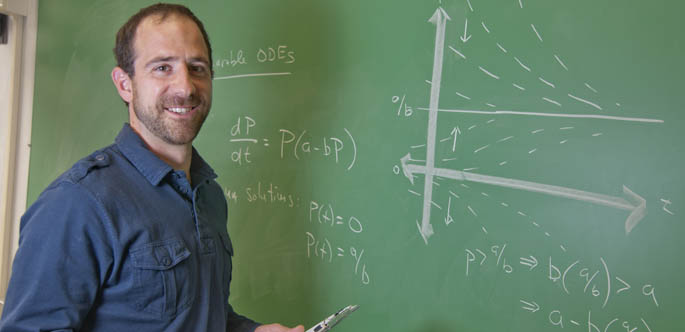Meet Assistant Professor Matthew Pascal, Mathematics Friday, October 14, 2011

Assistant Professor Matthew Pascal, Ph.D., comes to Point Park after teaching mathematics at various universities including West Virginia University, Towson University and American University. Pascal earned a Bachelor of Science from Duquesne University, a Master of Science from the University of Pittsburgh and a doctorate in mathematics education from American University.
What makes Point Park's mathematics program unique?
Class sizes are significantly smaller here than at larger universities so students tend to get more personal attention. All of my classes have only a maximum of 30 students.
What classes do you currently teach?
- Algebra
- Statistics
- Differential Equations
How would you describe your teaching style?
I lecture less than most professors and often have students work together in groups. Also, I give a lot of assignments so students have many opportunities to earn points.
What types of students need to have a strong background in mathematics before beginning their careers?
There are at least three types of students who really need to have a strong background in math and those are secondary education math, engineering and science students. To fully understand their own discipline, these students need to understand mathematical concepts up through differential equations. I tell my students that knowing advanced mathematics will give them the diagnostic tools they need to have a more holistic view on problem solving. Also, the courses I teach have a lot of social science applications. For example, topics we talk about in class include populations, radioactive decay, thermodynamics, the spread of disease, circuitry and mechanical engineering.
What math-related job opportunities are there?
By studying math, students can pursue careers in a variety of different industries such as academia and government. I've been told employers are always looking for individuals who have studied math in college because it really says something about them.
More About: mathematics, faculty, engineering technology, secondary education

